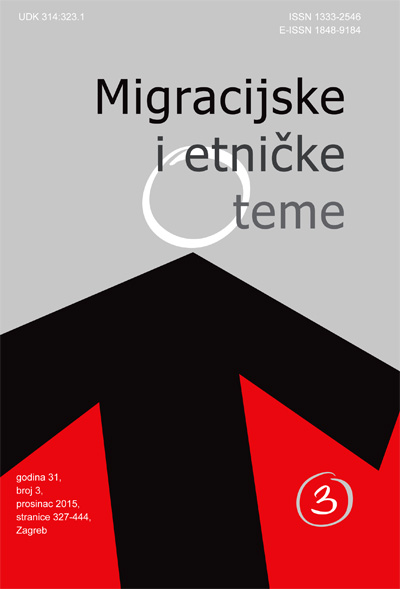Načelo zabrane vraćanja i pristup sustavu azila: dva lica iste kovanice
The Principle of Non-Refoulement and Access to Asylum System: Two Sides of the Same Coin
Author(s): Goranka Lalić NovakSubject(s): Law, Constitution, Jurisprudence, Human Rights and Humanitarian Law, Migration Studies, Ethnic Minorities Studies
Published by: Institut za migracije i narodnosti
Keywords: right to asylum; non-refoulement; access to territory; European Court of Human Rights
Summary/Abstract: The European Union and other countries on the Balkan route for migrants have recorded a large increase in the number of asylum seekers. In parallel with the increased number of refugees trying to enter the territory of the EU, measures for migration management have tightened, and the right to asylum at the level of the Member States has been interpreted more and more restrictive. Search for protection from persecution has become a reason for closing borders and disabling access to territory and asylum system. However, access to asylum system is the first step in the realization of the right to asylum as guaranteed by international, European and national law. In addition to allowing access to territory and asylum system, which implies an obligation of states to accept refugees in order to confirm the need for international protection in a fair and efficient procedure, the states are obliged to respect the principle of non-refoulement. The aim of this paper is to clarify the connection between providing access to asylum system and respect for the principle of non-refoulement. Analysis in the paper was done by legal-dogmatic method of research and interpretation of legal acts and other authorities, as well as of UNHCR relevant recommendations and documents. The assumption is that without the provision of access to territory and asylum system the principle of non-refoulement cannot be respected. Apart from the international refugee law and doctrinal interpretations, it derives from the practice of the European Court of Human Rights regarding the prohibition of torture or other inhuman treatment or punishment guaranteed by the Convention for the Protection of Human Rights and Fundamental Freedoms. The conclusion is that the states must take into account international and European standards regarding the protection of the principle of non-refoulement when considering the introduction of new measures to manage migration movements.
Journal: Migracijske i etničke teme
- Issue Year: 2015
- Issue No: 3
- Page Range: 365-385
- Page Count: 21
- Language: Croatian

